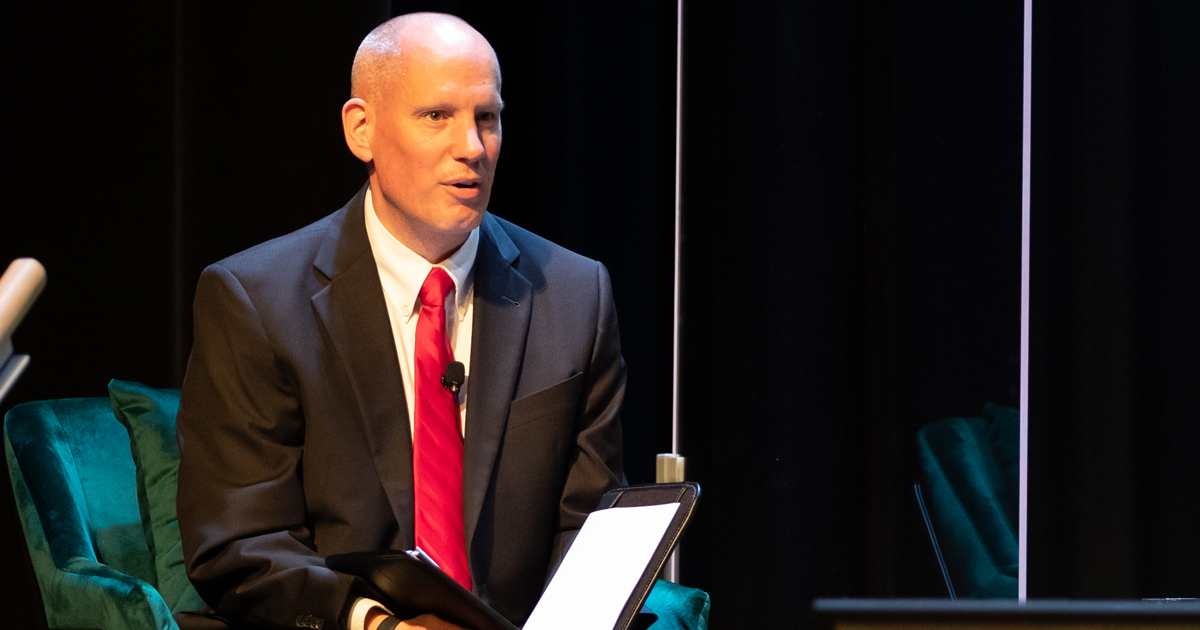Office Hours: Defining and Developing Entrepreneurial Leadership

Scott Taylor didn’t intend to be the inaugural Arthur M. Blank Endowed Chair for Values-Based Leadership. In fact, he originally wasn’t going to apply for the prestigious appointment, until his colleagues encouraged him.
The associate professor of organizational behavior simply was hoping to influence the process and perhaps shape the role—and The Arthur M. Blank School for Entrepreneurial Leadership at Babson College.
That’s what entrepreneurial leaders do.
And, as the new faculty chair, that’s now what Taylor will be guiding students to do.
In his new high-profile position, Taylor brings a desire to rethink business education and to define entrepreneurial leadership for generations to come. That mindset not only helped secure the appointment but also will help inform The Blank School at Babson.
“We have an opportunity to do something that is truly what we say we do, which is entrepreneurial, and, in a larger scheme of things, start to reshape management education,” Taylor said. “More than ever, business schools are needed to have impact. This is an incubator to really do something different, and that’s what’s thrilling to me.”
DIGITAL BOOKSHELF: Check out the latest publications by Babson faculty
Taylor arrived at Babson in the summer of 2014 after faculty stints at the University of New Mexico and Boston University. He earned his bachelor’s degree in Spanish from Brigham Young University, and he earned both his MBA and doctorate in organizational behavior from Case Western Reserve University.
Now, he’s in a unique position to put his experience, his teaching, and his research to use as Babson purposefully expands its focus to entrepreneurial leadership, largely thanks to the $50 million gift by Arthur M. Blank ’63, H’98 and The Arthur M. Blank Family Foundation for the creation of the new Blank School.
One of the hallmarks of The Blank School—and Taylor’s direction as faculty chair—is its transdisciplinary approach, attracting faculty from across campus and across divisions to help define and develop entrepreneurial leaders.
“I’m excited about the opportunity to define more effectively what entrepreneurial leadership is from an academic standpoint,” Taylor said, pointing to research, science, and rigor to help measure the impact. “I have in my mind what I think an entrepreneurial leader is, and I have an idea in my mind of how we can go about measuring that and developing that, but I don’t want to plant seeds too quickly.
“I think the great value of The Blank School is involving faculty from across disciplines and across divisions in those discussions and then seeing where that takes us.”
Posted in Community






